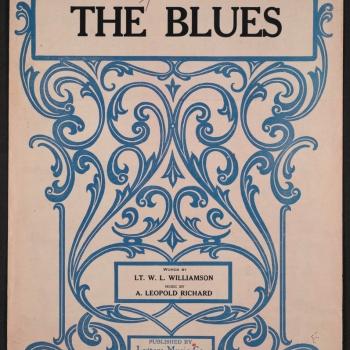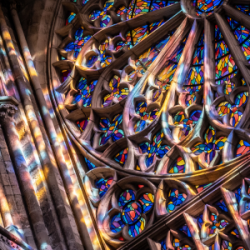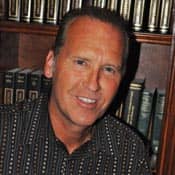Many people questioned the sincerity of Colson's conversion during these early days, seeing his "newfound faith" as sheer opportunism, an effort to curry favor and avoid potential criminal conviction. One pastor said to him, "Colson, I believe in Jesus Christ and I want to know how we can know if you're serious."
Colson answered, "I guess the best way to tell you whether I'm serious or not is for you see what I'm doing ten years from now."
One of the most surprising early evidences of Colson's conversion was his decision, against the counsel of his lawyers, to plead guilty. This sped along his prosecution and he ended up being sentence to 1 to 3 years, a longer period than several other Watergate figures. He was, however, paroled after seven months.
While in prison, Colson became troubled by the ineffectiveness of the prison system. He encountered numerous discussions among prisoners on how they would become more "effective" at their crimes once they left incarceration. He had the idea of designing a discipleship program for prisoners that would utilize a Christian retreat house. Eventually, Norman Carlson, the head of the Federal Bureau of Prisons, heard of his idea and approved it on an experimental basis. Launched in 1976, these were the early days of what would become Prison Fellowship (PF), now arguably the premier Christian prison outreach and criminal justice reform organization.
In the last quarter century, Colson became one of the most respected leaders in the evangelical movement. Sought out as a speaker at major Christian universities and organizations, he became a leading voice among Christian thinkers and a regular columnist at Christianity Today. He was a critic of post-modernism and debated that it is "incompatible" with the Christian tradition. He debated post-evangelicals, such as Brian McLaren, but endorsed the controversial "creation care" movement."
A Renaissance Man: Colson's Impact and Influence
Chuck Colson was a bit of an evangelical renaissance man. The work of the second half of his life included scholarship, authoring books, writing columns, radio commentary, advocacy, prison reform, apologetics, diplomacy, ecumenism, presidential policy advising, and more. His life modeled a magnanimous religious leader's capacity for breadth of interest and depth of influence. Although coming years will certainly reveal more of his lasting impact, already his influence has been felt in these seven areas:
A Watergate Miracle. Amidst the unraveling of the Nixon administration, one of the toughest characters in Washington became the focus of God's all-consuming grace. While an administration was falling apart, at least one soul was finding his way home. It was a bright story in one of the darkest periods of recent American history.
Reforming Prisoners and Prisons. When Colson entered prison on the first day of his sentence, little did he know just how many more times he would be entering other prisons for the first time. In fact, he would spend the rest of his life reaching prisoners with the Gospel and seeking to reform prison conditions for the sake of Christ. PF currently operates in 1,300 correctional facilities and works with over 7,000 churches in the United States.
Reclaiming a Christian Worldview. Colson's efforts to reach and reform prisoners for Christ led him to realize something vital that needed to be recovered in society: an authentically Christian worldview. In his book, How Now Shall We Live?, Colson wrote about the priority and the process of developing a truly Christian worldview.
An Advocate for the Church. In his 1993 Book, The Body, Colson effectively reemphasized the vital role of the Christian faith community in living as "light" in a culture teeming with "darkness."
A Practical Theologian. One of Colson's earliest books, Loving God (1983), revealed his penchant for reading and understanding Biblical theology and for finding ways to explain its practical dimensions. This book became a bit of an evangelical manifesto for service to mankind.
Engaging the Catholic-Evangelical Dialog. In 2009, Colson was a principal participant behind the Manhattan Declaration, an ecumenical statement calling on evangelicals, Catholics, and Orthodox Christians to resist rules and laws permitting abortion, same-sex marriage and other matters that conflict with religious conscience. Colson also co-wrote a common ground initiative with conservative Roman Catholics in the mid-90s called Evangelicals and Catholics Together.
Avoiding Politics While Affecting Policy. During the last decade of Colson's life, God brought him full circle. He returned to the White House on several occasions, this time not as an intimidating political advisor to President Nixon but as an advocating policy advisor to President George W. Bush.





